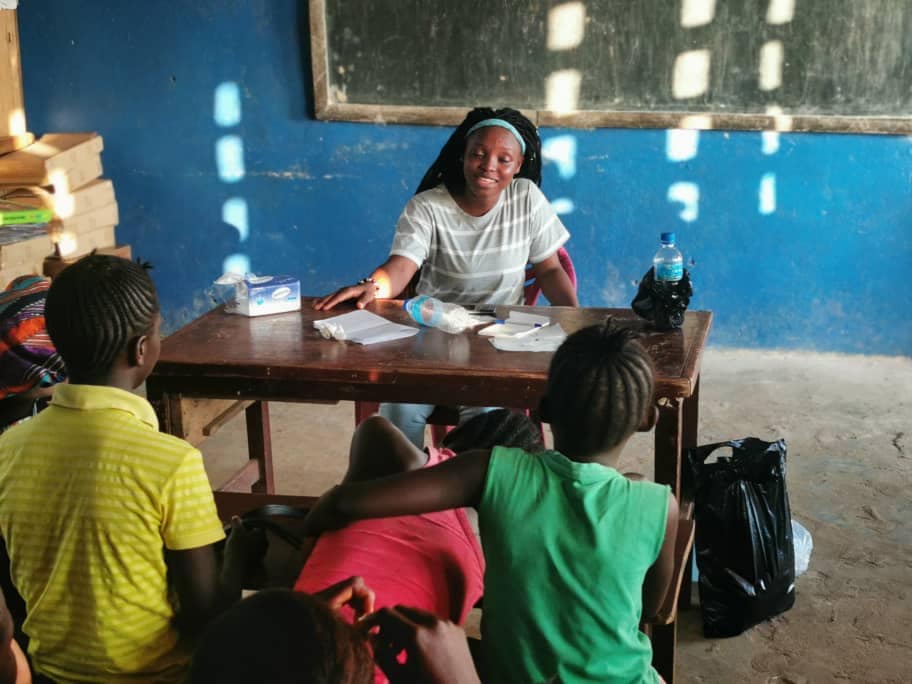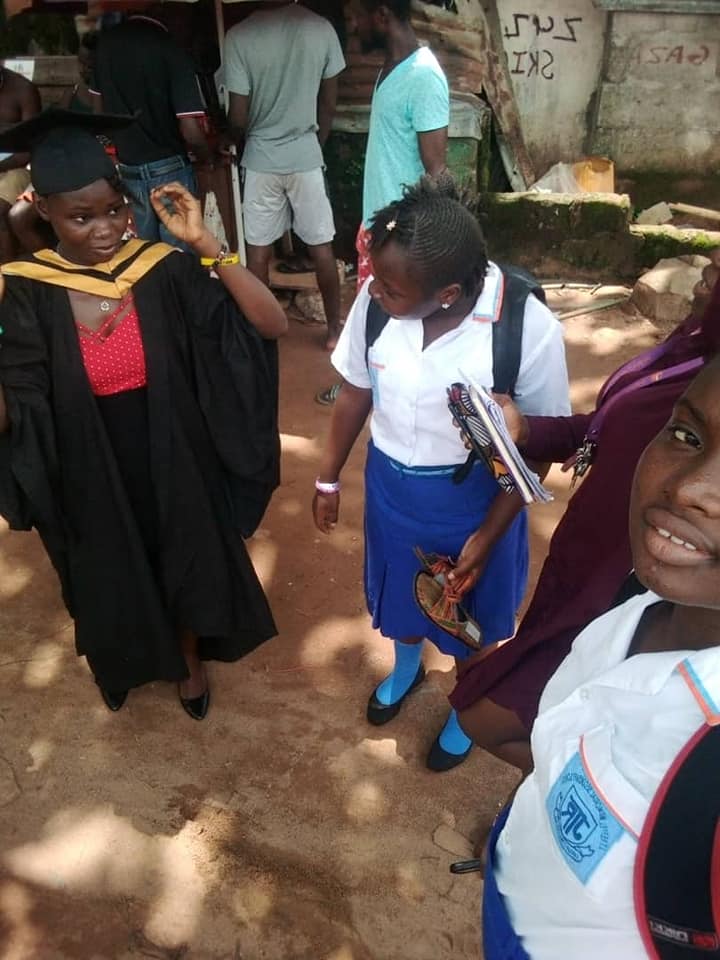This article was published more than 4 years ago.
If you want to empower girls, turn to the experts—girls and young women themselves.
In Sierra Leone , where sexual and gender-based violence is all too commonplace, a group of young women are making strides in educating and inspiring girls. Their organization, Mirror Africa, works through schools and community-based groups to make sure that girls and adolescent women understand their rights, worth, and potential to succeed. They also create young women–led media with the aim of preventing violence and providing resources to those who have experienced it.
“We don’t only represent the voice of the exploited, excluded, and violented, but we also represent their hope,” says Simeonette Pontis, Mirror Africa’s executive director and founder. “We help girls look at themselves with a new perspective, believe, and do. We say to them you can be bold, strong, outspoken.”

Mirror Africa is one of 10 groups selected by a panel of young Sierra Leoneans (ages 17 to 19), rather than by Fund program staff, to receive a grant in 2019. This type of support, called participatory grant-making, empowers communities to decide what and who to fund. It’s rooted in respect and reflects the Fund’s core belief that people directly affected by inequality are best placed to develop their own powerful solutions.
To launch this peer-led funding initiative, the Fund partnered with Purposeful, a movement-building hub for girls and young women in the Global South. They assembled a diverse panel of young people who identified critical youth needs—including combating sexual violence, boosting young women’s leadership, and promoting young people’s skills and livelihoods—and selected the 10 projects.
With the support received through the Fund initiative, Mirror Africa planned to increase their reach across new communities in 2020. Then, the COVID-19 pandemic hit. Sierra Leone instituted a nationwide lockdown in May 2020. Although it was lifted over the summer, many restrictions remain in place.
Schools were shut for six months, leaving girls more vulnerable to exploitation through forced labor, early marriage, sexual assault, or abuse at home. The stakes were high: during the 2014–2016 Ebola outbreak, the rate of teen pregnancy jumped by 50 percent.

Mirror Africa knew that girls’ needs would only increase during the public health emergency, and they responded quickly. Since they couldn’t meet in person, they began creating and sharing short films that explore girls’ stories and the issues they face. One, featuring a teen named Sandra, openly discussed how the stresses her family had experienced during the pandemic had taken a toll on her safety. Mirror Africa leveraged social media, messaging apps, and their networks to help share these resources. They held Facebook mentoring sessions, and helped girls access accurate COVID-19 prevention information. And when restrictions began to be lifted, they were ready to act. They worked with schools and mobilized teen ambassadors to establish in-person programs and clubs that reached 400 girls and young women in just a few months.
While COVID-19 forced Mirror Africa and all of the groups supported by the project to adapt, it also opened new opportunities for the young leaders involved to take on leadership roles within their community and advocate for children’s and youth needs and rights.
“The real value of this initiative lies in its potential for building the voices and agency of children and young people. We seek to not only transform how we identify and resource groups, but also how young people engage with their communities,” says John Kabia, program officer for the Fund’s Children’s and Youth Rights Program. “Already, we are seeing evidence of this emerging leadership and activism in the proactive ways in which young people and their organizations, such as Mirror Africa, are driving local COVID-19 response.”


